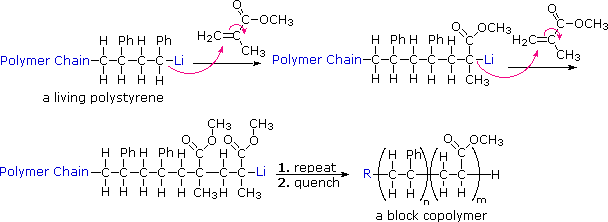Reusing Polymers: Advertising a Circular Economic Climate
Reusing Polymers: Advertising a Circular Economic Climate
Blog Article
Harnessing the Power of Polymers: Understanding the Considerable Usages and Favorable Impacts
Polymers, with their varied chemical structures and buildings, have come to be vital in many sectors, reinventing the means we interact with products on an everyday basis. As we check out the comprehensive uses of polymers and their role in forming an extra sustainable, reliable, and ingenious future, it comes to be noticeable that their capacity is as huge as the particles themselves.
Adaptability in Everyday Products
Polymers show amazing versatility in a wide selection of daily items, demonstrating their important role in contemporary society. From the versatile plastic housing of smart devices to the long lasting fibers in clothes, polymers have actually reinvented the method we interact with items in our lives. Among the most common usages of polymers is in packaging products. Polyethylene, as an example, is extensively made use of in food packaging because of its light-weight, durable, and moisture-resistant residential or commercial properties. In addition, polymers play a critical duty in the automobile market, where they are utilized in manufacturing lightweight elements that boost fuel efficiency.
Additionally, polymers have actually located their method into the medical care sector, with applications varying from clinical tools to medication shipment systems. For instance, naturally degradable polymers are used in sutures and implants, decreasing the threat of unfavorable responses in people (Polymers). In the building and construction sector, polymers are incorporated into paints, adhesives, and insulation materials, improving longevity and energy performance. Generally, the flexibility of polymers in everyday products highlights their relevance in driving development and improving top quality of life.
Sustainability in Material Innovations
With the ongoing focus on environmental consciousness and resource effectiveness, the focus shifts in the direction of sustainability in product advancements, mirroring a growing dedication to accountable production practices across various markets. In recent times, there has actually been a notable surge in the growth of lasting materials, specifically within the realm of polymers. These innovative materials are designed to reduce ecological influence throughout their whole lifecycle-- from sourcing resources to disposal or recycling.
One significant aspect of sustainability in material innovations is the principle of biodegradability. Naturally degradable polymers have actually amassed interest for their capacity to damage down normally right into safe byproducts, reducing waste and pollution. Furthermore, using recycled polymers originated from post-consumer or post-industrial resources is getting grip as a way of promoting a circular economy and decreasing dependency on virgin materials.

Enhancing Efficiency in Design
Enhancing performance in design needs a precise assimilation of advanced innovations and exact methodologies to maximize performance and effectiveness in different commercial applications. Polymers play an essential function in this undertaking, providing a vast array of benefits that boost the efficiency of engineering materials and components.
One key aspect of boosting efficiency in design is the ability of polymers to enhance resilience and stamina. By incorporating polymers right into engineering designs, producers can create light-weight yet durable structures that can withstand high levels of stress and stress. This characteristic is especially useful in markets such as aerospace, automobile, and construction, where the need for solid yet light-weight materials is extremely important.
Moreover, polymers can also enhance performance by giving thermal and chemical resistance, lowering rubbing, and boosting electrical check out this site conductivity. These buildings make polymers excellent for a large range of engineering applications, including seals, bearings, finishings, and digital components. Polymers. By taking advantage of the unique homes of polymers, engineers can maximize the efficiency of their styles and develop extra effective and reliable products
Influence On Medical Improvements
The integration additional hints of advanced polymer modern technologies has actually considerably added to innovative developments in the clinical field. Polymers have actually played a crucial role in modern-day clinical developments, varying from medication shipment systems to cells engineering. Among the crucial locations where polymers have made a substantial effect remains in the advancement of biodegradable stitches and implants. These polymers can be tailored to weaken at a specific rate, permitting better wound recovery and lowering the requirement for additional surgical treatments to get rid of implants.
Additionally, polymer-based materials are increasingly being made use of in clinical tools such as catheters, stents, and prosthetics due to their biocompatibility and flexibility. Polymer coatings on medical gadgets can prevent infections and improve general patient results - Polymers. Additionally, improvements in nanomedicine have actually allowed making use of polymer nanoparticles for targeted drug shipment, enhancing the efficacy and decreasing negative effects of different drugs
Duty in Environmental Preservation

In addition, polymers are utilized in water treatment procedures, aiding in the published here purification and recycling of water resources. This assists in decreasing water pollution and making certain access to tidy water for both human consumption and environmental health and wellness. Polymers additionally contribute in agriculture through the advancement of eco-friendly composts and controlled-release fertilizers, promoting sustainable farming practices.
Final Thought
In verdict, polymers have proven to be a flexible and important material in numerous industries, from day-to-day products to design and medical advancements. Understanding the extensive uses of polymers underscores their value in driving advancement and progress in several areas.
Report this page